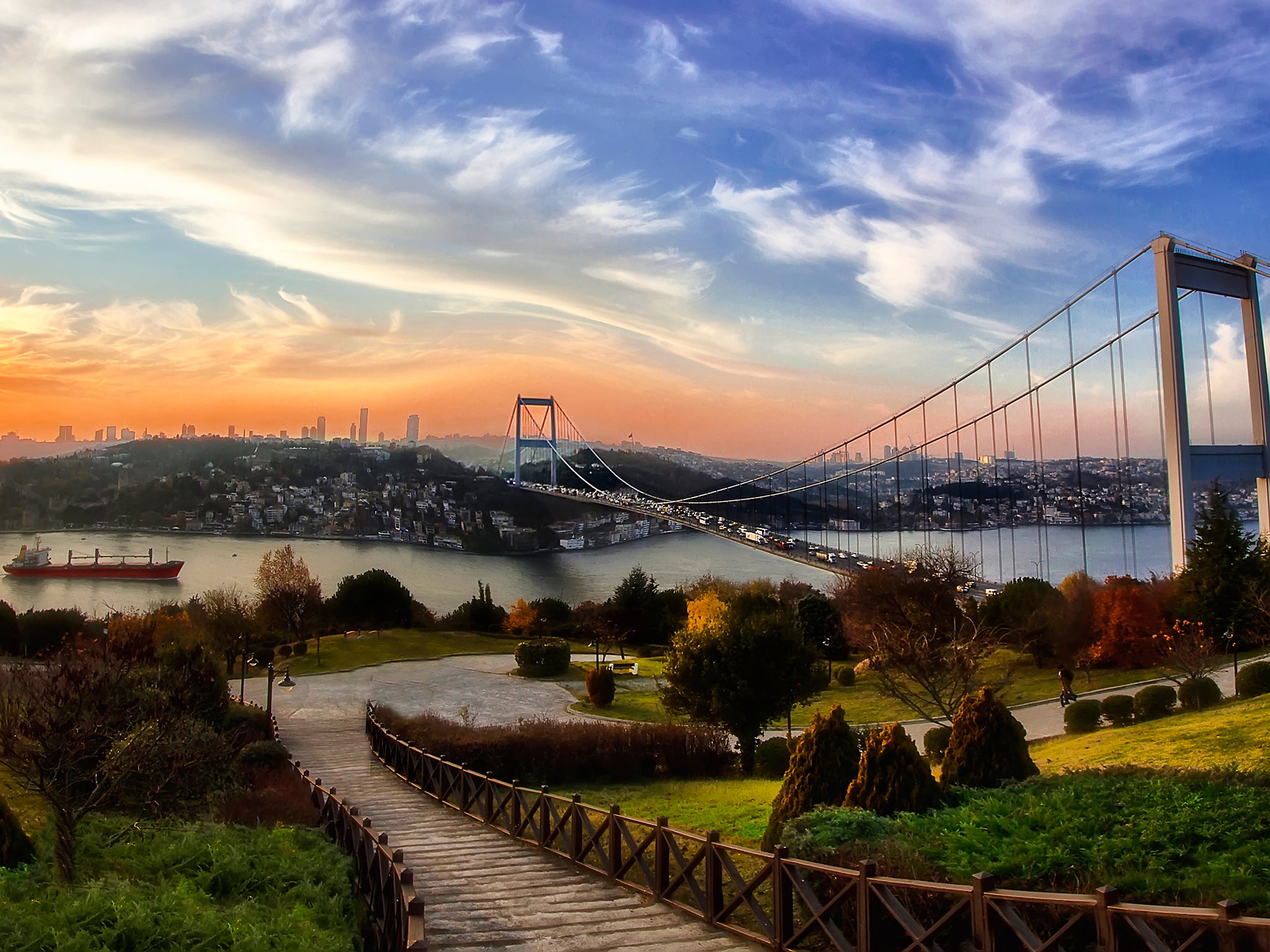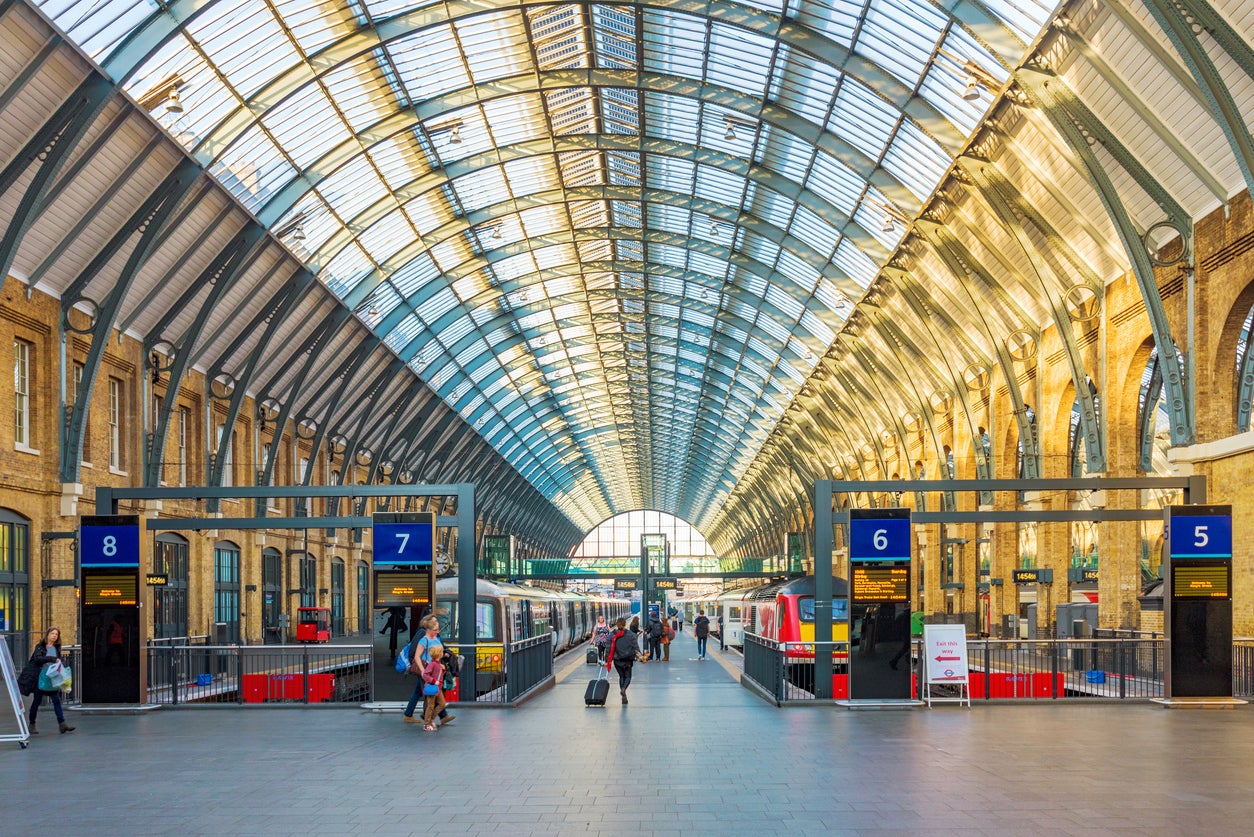Is Turkey a bridge too far?
Simon Calder on Turkish passport requirements, Algiers and top train stations


Q In the next couple of months I am going to Prague and Spain. In August I am going to Turkey. My passport runs out on 24 February 2024. I think I’m OK for Prague and Spain. But when coming back from Turkey, there will only be five months left on my passport. Should I get a new one before then, just in case – and, if so, what do I do about the 10-week renewal period?
Vaughan
A I wish I could share your confidence about your trips to the Czech Republic and Spain. As the UK requested when leaving the European Union, British passports must comply with two conditions for a trip to the EU: issued in the past 10 years, and valid for at least three months beyond the day you plan to return.
As the summer goes on, I am hearing from more and more travellers who have fallen foul of the first rule. That is because passports in the UK used to be issued for up to 10 years and nine months. So your passport may have passed its 10th birthday as early as 24 May 2023 – in which case you are no longer able to travel to the EU. If this is the case, and you need to renew, do not fret about the absurd stipulation from HM Passport Office to allow at least 10 weeks for processing. Even with demand stepping up as the peak summer months of July and August approach, you should not need to wait more than two weeks for a straightforward online renewal.
For Turkey, the requirement is that your passport has at least 150 days (almost five months) until the expiry date on the day you arrive. I calculate the last possible date you could travel out to Turkey is 27 September 2023. You will be able to stay for up to 90 days in Turkey, taking you almost to Christmas: the 150-day rule applies to the day you arrive, not leave.

Q Do you recommend Algiers for a city break?
Sarah O’N
A Not yet. Over the years I have met dozens of Algerian travellers and learnt about the wonders of their home country. In particular, I heard about one of Africa’s most ravishing capitals: Algiers, known as La Blanche. Finally, I was able to visit the city for the first time this year.
The preparation for British travellers is tedious. The interminable visa-application process requires completion (in duplicate) of an application form possibly designed by Franz Kafka’s Algerian cousin; two photocopies of each page of your passport; repeated attendance at the Algerian Consulate in west London; and handing over £85 in cash. In addition, you require an Algerian tour firm on your side to set up the trip; I used the excellent Fancyellow, which I commend.
As you might infer, Africa’s largest nation is not as dependent on tourism as its neighbours, Morocco and Tunisia. In some ways this makes a visit all the more rewarding, because there are simply no visitor crowds. My experience of Algiers was of a capital with formidable prospects as one of the great Mediterranean cities: with a superb harbour, an ancient (and Unesco-listed) kasbah, colonial architecture and gardens from the period of French rule, the impressive National Museum of Antiquities and much more. Furthermore, an efficient modern Metro links many of the main sites. Above all, most of the people you encounter are friendly and welcoming.
And yet I cannot yet wholeheartedly recommend Algiers. Essential tourist pleasures such as a drink at a waterfront cafe simply don’t exist yet. Even finding a good local dinner is difficult. Regrettably, I have heard multiple reports of crime from fellow travellers. The Foreign Office says: “Avoid areas that you don’t know, particularly in the suburbs of the city and especially after dark.”
In contrast, I unreservedly urge you to visit the eastern city of Constantine. It boasts a breathtaking location high above a twisting river gorge, an intricate kasbah that feels more alive than that in Algiers, a decent historical museum and lots of cafes. There is also reasonable access to the superb Roman remains in Timgad. Fly to Constantine via Marseille (I used a combination of British Airways and Volotea) and save Algiers for your next visit.

Q I was teaching a short course on travel to a group of international students. I asked them for their favourite railway stations. The list included Naples, New York Grand Central, Tokyo, Zurich, Amsterdam, Munich, Antwerp, Copenhagen and London King’s Cross (which remarkably got three votes). Do you concur?
Tony W
A How intriguing. I imagine the nominations reflect the fact that many people are fond of their “personal” stations. Those mentioned all have some merit, but I sense that some other contenders have been overlooked. Napoli Centrale is big, busy and energising, but Milano Centrale is more impressive. Similarly, Munich’s Hauptbahnhof is mighty but not a patch on the superbly reinvented main station at Leipzig. Copenhagen is austerely beautiful, but Helsinki has more Nordic ambience. And Zurich is not a patch on Basel (whose “French quarter” for SNCF trains to Mulhouse and Strasbourg is a gem).
Now on to the serious contenders. The problem I have with New York’s Grand Central is that the route network undermines the grandeur of the station: it is a magnificent rail terminus with an unimpressive range of suburban trains. Long-distance expresses in New York City serve the abysmal Penn Station, a catastrophic 1970s architectural error. Of the big American intercity stations, Washington Union is easily the most atmospheric.
Amsterdam and Tokyo are solid nominations. Both are in the Northern Renaissance style but the latter is a copy of the former. Amsterdam’s magnificent facade has echoes of the Rijksmuseum, the leading cultural hub in the Dutch capital; both were designed by the architect P J H Cuypers. Antwerp Central’s palatial appearance makes it a star; oddly, Eurostar from London whizzes straight past the city en route to Rotterdam and Amsterdam without stopping.
Finally, King’s Cross. The refurbished stations make the most of what is a functional design. But I can only imagine that some students confused it with St Pancras International, just across the road, which is a strong contender for the world’s most beautiful station. The Eurostar hub is also well-connected with English destinations from Kent to South Yorkshire, as well as Brighton and Cambridge. Nowhere else comes close.
Email your question to s@hols.tv or tweet @simoncalder
Join our commenting forum
Join thought-provoking conversations, follow other Independent readers and see their replies
Comments
Bookmark popover
Removed from bookmarks